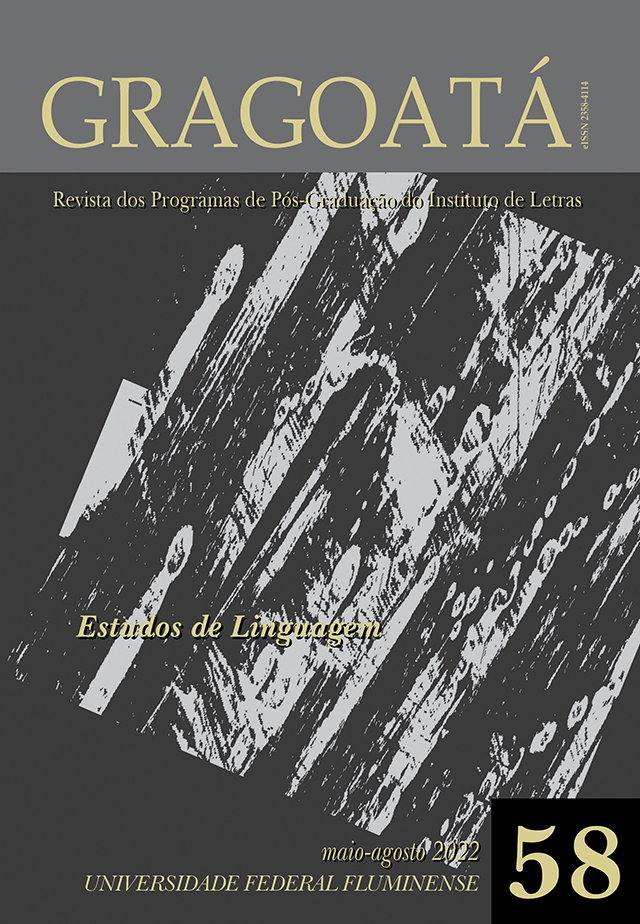Information structure of ancient greek
DOI :
https://doi.org/10.22409/gragoata.v27i58.51963Mots-clés :
Estrutura da informação, Pressuposição factível, Semântica modal, Aspectos verbais, Particípio gregoRésumé
The aim of this paper is to provide a description of the information structure in Ancient Greek considering the semantics of the moods and the verbal aspect in clause complex, in particular the use of the participle placed before the main clause. From the perspective of information structure, three kinds of participles are described: circumstantial participle (CP), absolute genitive participle (AGP) functioning as tracking reference, and upgraded participle (UP), based on the factive presupposition semantics of the participle (modulation). It is argued that the participle semantics contributes to the information structure processing of the these uses of the participle as common ground management in complex clauses. Besides, taken into account its modulation semantics, the participle is a syntactic device for the coding of the information structure, which contributes the pragmatics of the reference tracking (RT) and its adverbial uses. The samples are taken from Classical Greek (Aristophane’s comedies) and Biblical Greek (The book of Acts). The theoretical approach is the Systemic Functional Linguistics applied to the Greek language (PORTER, 2021, 2015, 2009, 1993; 2018, REED, 1997) with the findings of the information structure studies (MATIĆ ET. AL, 2014; KRIFKA; MUSAN, 2012; LAMBRECHT, 1994; CHAFE, 1987), using the notions of Given/New, background/prominence, and presupposition/assertion.
Téléchargements
Téléchargements
Publiée
Numéro
Rubrique
Licence
AUTORIZAÇÃO
Autores que publicam em Gragoatá concordam com os seguintes termos:
Os autores mantêm os direitos e cedem à revista o direito à primeira publicação, simultaneamente submetido a uma licença Creative Commons Atribuição 4.0 Internacional (CC BY 4.0), que permite o compartilhamento por terceiros com a devida menção ao autor e à primeira publicação pela Gragoatá.
Os autores podem entrar em acordos contratuais adicionais e separados para a distribuição não exclusiva da versão publicada da obra (por exemplo, postá-la em um repositório institucional ou publicá-la em um livro), com o reconhecimento de sua publicação inicial na Gragoatá.
A Gragoatá utiliza uma Licença Creative Commons - Atribuição CC BY 4.0 Internacional.











